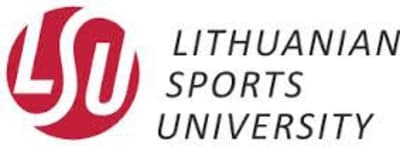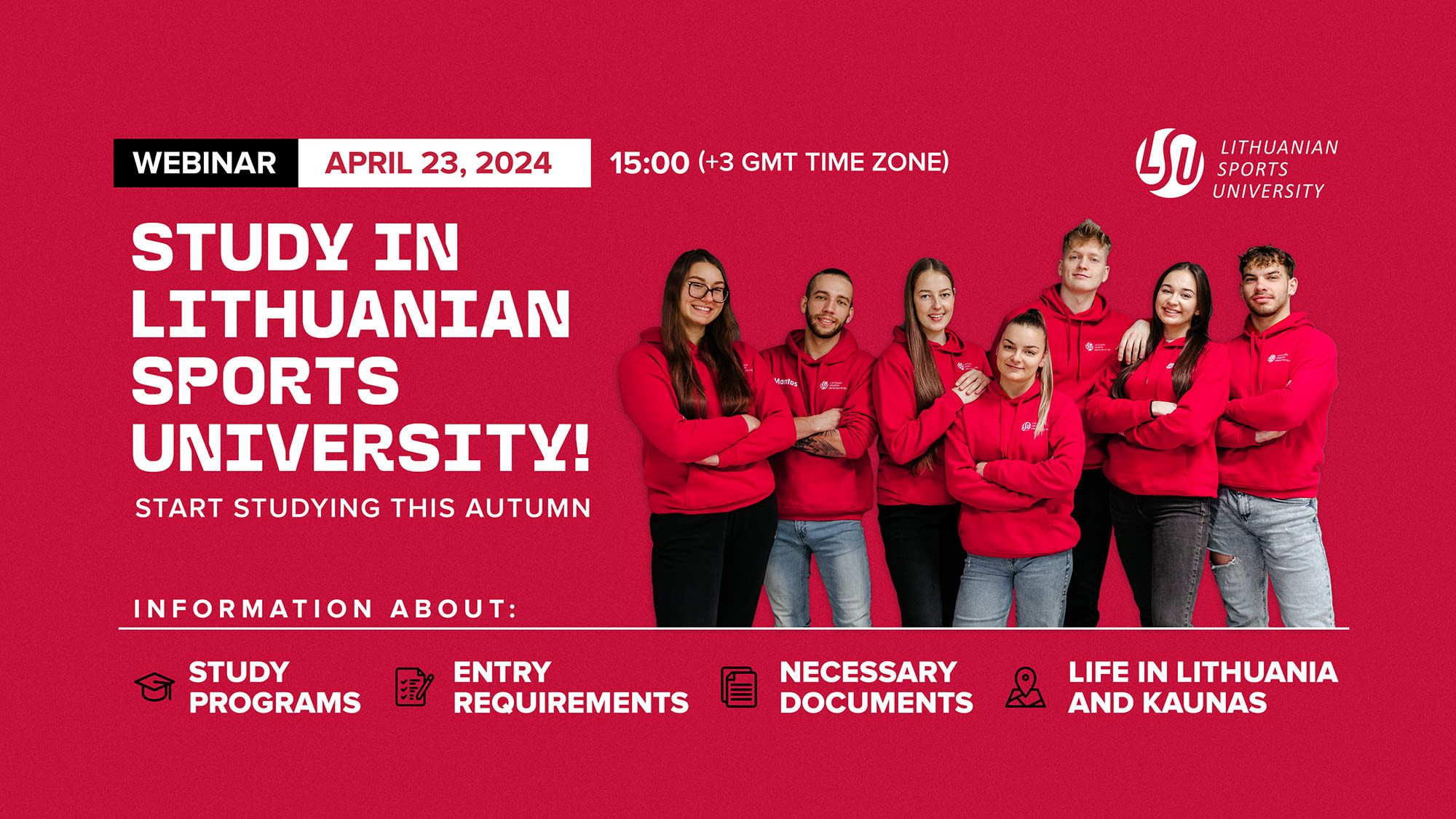
Lithuanian Sports University

Introduction
Lithuanian Sports University (LSU) is proud to be the only specialized university in Lithuania, which has been uniting Movement and Sports Science for over eight decades. Studies in sport and related areas are gaining popularity, at the same time opening new opportunities for successful graduates. There will be a continuous rise in the need for professionals assisting those who strive for healthy, active, and long life.
Therefore, you can succeed in life along with LSU, where studies, sports science, and practice are interconnected. Exceptional attention to every international student, science-based studies, and a sports-living community will provide knowledge and interesting experience every day. Make the right choice and it will help to implement your goals and become exceptional.
Among the LSU graduates, there are many distinguished scientists, world-renowned coaches, famous athletes, and prominent public figures. A great number of the LSU students and graduates have become champions and prize-winners of the Olympic Games, World, and European championships.
Lithuania Sports University hosts an engaging webinar discussing exciting study opportunities and programs tailored for sports, physiotherapy and health enthusiasts.Registration form for participants: https://forms.office.com/e/dbKubZYH5S

Admissions
Rankings
Journal “Reitingai” has published the latest evaluation of Lithuanian higher education institutions. Lithuanian Sports University (LSU) was best evaluated in the categories of “Present and Future Academic Staff”, “Competition in the International Study Area” and “Students and Studies”.
According to the ranking criterion “Present and Future Academic Staff”, LSU came third of eleven state universities in Lithuania – it got 6.59 out of the possible 10 points.
Our contribution to sports science is internationally recognized. LSU, together with other sport science higher education institutions and departments in the world, was ranked in the Shanghai Ranking's Global Ranking of Sport Science Schools and Departments. In 2022 LSU was in the 133rd place. But we have the capacity to be among the world’s top 100 sports science universities and departments in the next five years.
The University actively participates in the processes of creating the European Higher Education
Area (hereinafter EHEA). LSU is the only specialised university in the country and member of European Network for Sport Science, Education and Employment (ENSSEE), the European Observatory for Sport and Employment (EOSE), the Baltic Sport Science Association (BSSS), the European Association of Sport Management (EASM), and the European College of Sport Science (ECSS) member.

Locations
- Kaunas
Lietuvos sporto universitetas Sporto 6, 44221, Kaunas